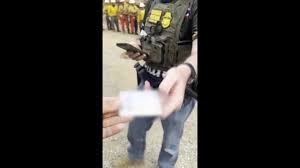
Introduction
The recent arrest of two firefighters by U.S. Border Patrol has raised eyebrows and ignited discussions about the role of emergency responders in border security issues. This incident, which took place on October 15, 2023, has significant implications not only for local firefighting communities but also for the ongoing dialogue surrounding immigration enforcement.
Details of the Incident
The arrests occurred in southern Arizona, where the firefighters were reportedly responding to a fire near the U.S.-Mexico border. According to Border Patrol officials, the duo was intercepted during a routine patrol in an area known for frequent illegal crossings. The officers claim that the firefighters were assisting undocumented immigrants by providing them with water and first aid. This action led to their arrest on the grounds of aiding and abetting illegal immigration.
Local fire department officials have expressed shock at the arrests, stating that their personnel were merely performing their duties as emergency responders. “Our firefighters are trained to help all individuals in need, regardless of their immigration status,” said the spokesperson for the fire department. The department is currently reviewing protocols and has pledged to support the firefighters during this legal process.
Reactions and Implications
This incident has garnered significant media attention, sparking a wave of reactions from both sides of the immigration debate. Advocates for immigration reform argue that the arrests highlight the dangers faced by those providing humanitarian aid along the border. On the other hand, supporters of strict border enforcement emphasize that aiding undocumented migrants undermines the rule of law.
The firefighters’ union has also weighed in, calling for an immediate review of the Border Patrol’s methods in areas where emergency services operate. Union representatives argue that this incident could deter emergency responders from assisting anyone in border areas, fearing they might face similar scrutiny or arrest.
Conclusion
The arrests of these two firefighters could have lasting implications for the interaction between emergency services and border enforcement. As legal proceedings unfold, it remains to be seen how this situation will affect the policies regarding humanitarian aid at the border. Both the firefighting community and broader society will be watching closely how these events shape the conversation around immigration and public safety. With increasing tensions surrounding border control, incidents like this could prompt deeper discussions about the intersection of law enforcement and humanitarian efforts in America.



